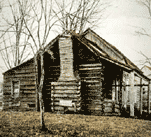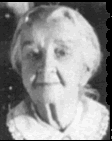

| Phoebe's Story | |
| Pioneer Experiences | |
| Gallery | |
| Bibliography | |
| Related Links | |
Created by Viktoria Sinex, Art of Local History, The Evergreen State College, Olympia, WA December 2003
|
The Judsons Relocate
After the hostilities subsided, the Judsons moved to the town of
Olympia, opened a dry goods store, and rented a genuine frame house
for a time. This allowed them a social life, neighbors, church gatherings,
and the sort of events they missed from their life in Ohio. Shortly after this event, a man visited from the Nooksack Valley, near the Canadian border. Colonel Patterson, whose Indian wife ran off a hired hand, leaving the Colonel with two small children, approached the Judsons about caring for his little girls. He described his home with such exuberance that not only did they agree to take in the two half-breed girls, but to move with them to the Nooksack River area to start anew. |
||
